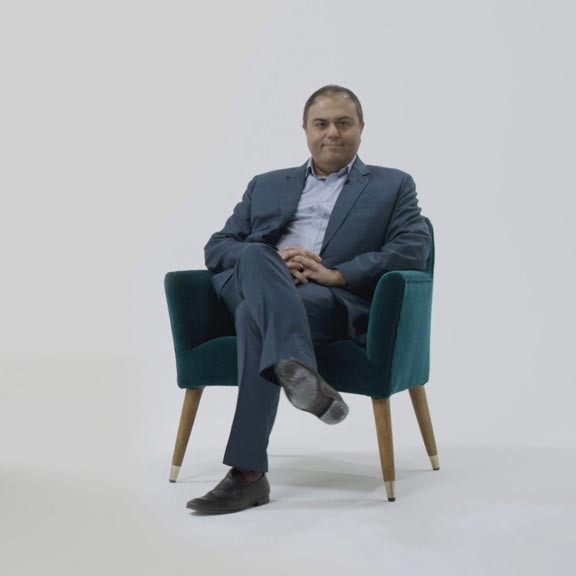Prostate surgery and laser prostate surgery at Spire Thames Valley Hospital
Treatment to reduce an enlarged prostate that is causing problems.
At Spire Thames Valley Hospital, our consultants provide prostate surgery for an enlarged prostate (benign prostatic hyperplasia or BPH) to relieve urinary difficulties.
Symptoms are caused by the enlarged prostate pressing on your urethra and bladder. Your consultant can treat this by removing or destroying prostate tissue.
Sometimes also called
- Transurethral prostatic resection
- TURP procedure or TURP surgery
- Transurethral resection of the prostate (TURP)
- Laser prostate surgery (HoLEP or GreenLight)
- UroLift®
- Aquablation® therapy
The procedure(s) listed above are examples only and may not be available at all Spire hospitals.
At a glance
-
Typical hospital stay
1-3 nights -
Procedure duration
45-120 minutes -
Type of anaesthetic
General, spinal, epidural or local -
Available to self-pay?
Yes -
Covered by health insurance?
Yes
Why Spire?
- Fast access to diagnostic tests and scans
- Wide range of treatments offered
- Clear, inclusive pricing
- Rated 'Good' by the Care Quality Commission
Prostate surgery: what to expect at Spire Thames Valley Hospital
At Spire Thames Valley Hospital, we take pride in providing a high standard of private hospital care to our patients in the Thames Valley, Buckinghamshire, Berkshire and Windsor areas.
Our expert consultants will provide you with a treatment and recovery plan that’s personalised to your needs. We offer fast access to diagnostic tests, scans and consultations, so you won’t have to wait long to find out if surgery is right for you. We’ll usually be able to book your surgery within a week of your referral or diagnosis by your consultant.
You can expect to receive high-quality care in our clean, modern facilities from a consultant of your choice.
How much does Prostate surgery and laser prostate surgery cost at Spire Thames Valley Hospital
We offer many ways to pay and our inclusive prices and access to payment plans make it easy and more affordable, even if you don’t have medical insurance.
| Prostate resection (TURP) | |||
|---|---|---|---|
| Initial consultation | We can't display the initial consultation fee just now. Call us for a quote. | ||
| Treatment price | £9,382 | ||
| Aftercare | Included | ||
| From price | From £9,382 | ||
|
Monthly treatment price (Loan applicable to the treatment cost and excludes the initial consultation) |
£268 | ||
| Representative example | |
|---|---|
| Loan amount | £8,382 |
| Deposit | £1,000 |
| Loan period | 36 months |
| Representative APR | 9.9% |
| Total amount repayable | £9,648 |
The price shown is the ‘from price’ (ie the minimum cost of the procedure). Please note that for some procedures the actual price you are quoted may vary significantly and can increase depending on your choice of Consultant (who is an independent practitioner and not an employee of Spire). The fees charged by Consultants and Anaesthetists are set independently and are outside the control of Spire. The price may also vary depending on the type of anaesthetic, implant or drug used, and your medical history.
Spire Thames Valley Hospital can provide you with a single, fixed price for your procedure so there are no surprises. Please read Spire Healthcare's terms and conditions for full details of what’s included and excluded in your fixed price when paying for yourself. Finance options are available through our partner Omni Capital Retail Finance Ltd, 10 Norwich Street, London, EC4A 1BD.
Procedures offered for prostate surgery at Spire Thames Valley Hospital
Your consultant will assess the condition of your prostate, your general health and your intended outcome in order to recommend the most appropriate treatment for you.
Our consultants offer a variety of treatments for benign prostate enlargement.
The type of anaesthetic you need varies depending on the procedure you need. It may be:
- A general anaesthetic meaning you’re asleep – this is most often used
- A spinal or epidural – where you can’t feel anything from the waist down
- A local anaesthetic – you’ll be awake but you won’t be able to feel anything in the area being operated on
Transurethral resection of the prostate (TURP)
- A special instrument is passed through your urethra and a small, electrically-heated wire is used to trim small pieces of prostate tissue
- Performed under general anaesthetic
- You’ll need a urinary catheter for around one to three days after the operation
Holmium Laser Prostate Surgery (HoLEP)
- This is the best technique for very big prostates
- A specialised telescope is passed through your urethra and a laser (Holmium laser) is used to shell out the inside of the prostate
- Performed under general anaesthetic
- You usually need a urinary catheter for around one to two days after the operation
Transurethral electrovaporisation of the prostate (TUVP)
- Similar to TURP, but a rollerball instead of a wire loop is used to apply electrical energy to the tissue
- Performed under general or spinal anaesthetic
- A catheter is still required, but may be for a shorter time than TURP
Laser prostate surgery
- A specialised tool is passed through your urethra and a laser (eg a HoLEP Holmium laser or GreenLight laser) which generates intense heat is used to trim small pieces of prostate tissue
- Performed under general anaesthetic
- You usually need a urinary catheter for around one to three days after the operation, but it may be for a shorter time than with a TURP
UroLift (prostatic urethral lift (PUL) implants)
- Instead of removing prostate tissue, implants are positioned to hold your prostate out of the way and increase the width of your urethra
- This procedure can be performed under general or local anaesthetic
- Usually, a urinary catheter isn’t required
Prostate artery embolisation (PAE)
- Shrinks the size of your prostate by blocking the arteries that feed it
- Performed using local anaesthetic
- A urinary catheter isn’t usually required
Water ablation
- Water or steam under pressure is used to destroy prostate tissue
- Performed using general or spinal anaesthetic
- You’ll need a urinary catheter, usually until you leave the day after.
Your consultant will explain the potential benefits and complications of each procedure before you decide to go ahead.
Find a consultant at Spire Thames Valley Hospital
Preparing for prostate surgery at Spire Thames Valley Hospital
Getting here
We're only a 10 minute drive from both the M4 and M40 motorways and we’re less than half an hour from central London by train. We have free on-site parking for you and your visitors.
Your consultation
You’ll meet your chosen consultant in one of our private consultation rooms. They’ll discuss:
- Your symptoms and any particular urinary problems you’re having
- What the treatment options are, including alternatives to surgery such as medication and lifestyle changes
- Whether you need any tests or scans to help your consultant plan the next steps
- The potential benefits and risks of treatment
You may also need a pre-operative assessment with one of our specialist nurses to check if the procedure is right for you.
Prostate surgery: your procedure
Prostate surgery takes from one to two hours. If you’ve come with a friend or family member, they’re welcome to wait in our lounge, which has a TV and free hot drinks or water, while you have your operation.
After surgery, you may need a urinary catheter until the swelling in your urethra has gone down, allowing you to pass urine normally again. This will be taken out by one of our nurses before you leave hospital – which is usually two nights after your operation. During your stay, you’ll have your own en-suite room which will have:
- A TV
- A window
- An armchair
- An en-suite bathroom with towels
- A lockable bedside table
Prostate surgery: your recovery
Our nurses will provide you with medication to help you manage any pain following your operation. They’ll also give you advice about over-the-counter medications you can use while at home, and anything you should or shouldn’t do.
Your recovery time will depend on the procedure you've had and your overall health. Although everyone’s different and you should always follow your consultant’s advice, here’s a typical timeline for transurethral resection of the prostate (TURP) - the most common procedure:
Treatment and recovery timeline

1-3 days
Catheter is removed and you can leave hospital
1-3 weeks
Driving and gentle walking
3-4 weeks
Back to desk-based job and sex if you’re comfortable enough
4-8 weeks
Full recovery
-
1-3 days
Catheter is removed and you can leave hospital
-
1-3 weeks
Driving and gentle walking
-
3-4 weeks
Back to desk-based job and sex if you’re comfortable enough
-
4-8 weeks
Full recovery
The treatment described on this page may be adapted to meet your individual needs, so it's important to follow your healthcare professional's advice and raise any questions that you may have with them.
How to get to us
Spire Thames Valley Hospital is only a 10 minute drive from both the M4 and M40 motorways and we are less than half an hour from central London by train.
Spire Thames Valley Hospital,
Wexham Street
Wexham
Bucks
SL3 6NH
Get in touch
Important information about Covid-19 tests
COVID-19 testing or antibody tests are not available as a standalone service at Spire Thames Valley Hospital.
Sources
Prostate Cancer UK TURP factsheet
http://www.baus.org.uk/_userfiles/pages/files/Patients/Leaflets/TURP%20for%20benign.pdf
https://www.nhs.uk/conditions/transurethral-resection-of-the-prostate-turp/
https://www.nice.org.uk/guidance/mtg23/chapter/1-Recommendations
https://patient.info/doctor/benign-prostatic-hyperplasia
https://www.baus.org.uk/_userfiles/pages/files/Patients/Leaflets/HoLEP.pdf



